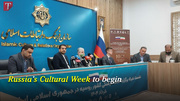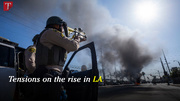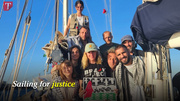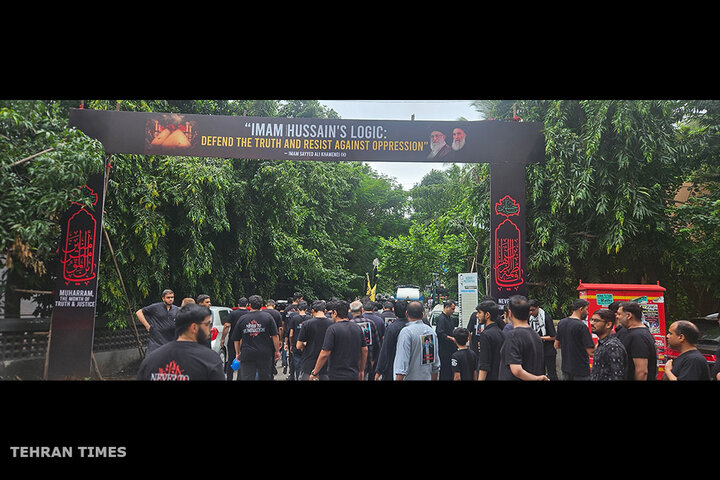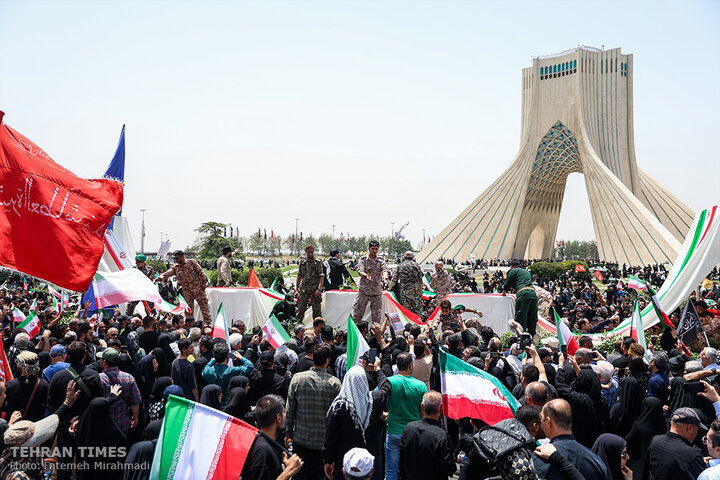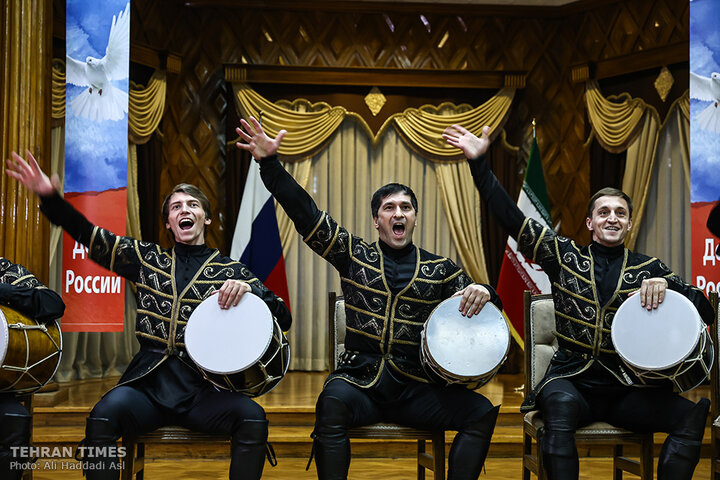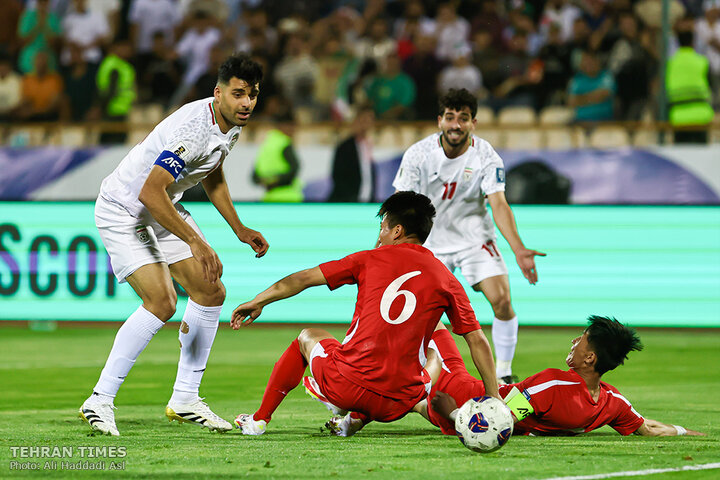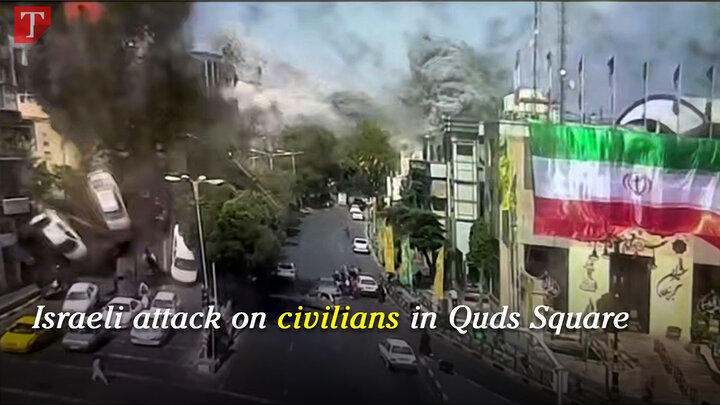-
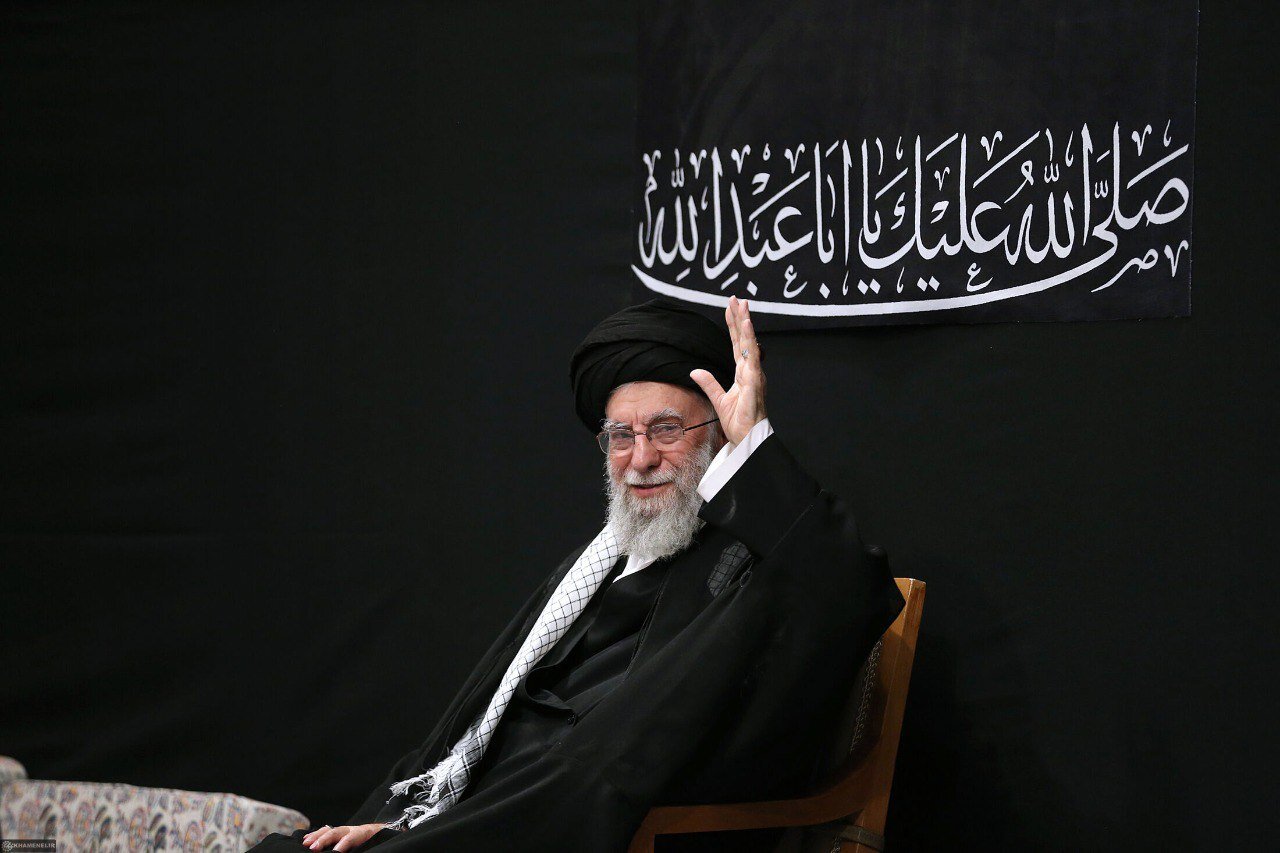 2025-07-11 22:33
2025-07-11 22:33
By Faramarz Kouhpayeh
Ayatollah Khamenei personally commanded war room
Parliament Speaker reveals details of Iran's war management during 12-day fight with Israel
TEHRAN – In an interview addressing the recent Iran-Israel conflict, Parliament Speaker Mohammad Bagher Ghalibaf disclosed that the Leader of the Islamic Revolution, Ayatollah Seyyed Ali Khamenei, played a pivotal role in orchestrating Iran's decisive strikes, which forced both Israel and Washington to seek a ceasefire after just 12 days of war.
-

By Sahar Dadjoo
US move against UN Gaza investigator comes as a shock
TEHRAN - The United States' decision to impose sanctions on Francesca Albanese, the UN Special Rapporteur on the situation of human rights in the Occupied Palestinian Territory, has ignited a global outcry and intensified debates over international justice, the independence of UN mechanisms, and the limits of state power.
-

By Sondoss Al Asaad
Is Geagea pushing his ministers to resign?
BEIRUT—Lebanese Forces leader Samir Geagea continues to prioritize the slogan of “disarming Hezbollah,” particularly following the diminished influence of U.S. envoys in Lebanon's political landscape.
-

Russia’s Lavrov denounces US strikes on Iran as brazen NPT violation
TEHRAN – Russian Foreign Minister Sergei Lavrov condemned recent U.S. military strikes against Iran during his address at the East Asia Summit in Kuala Lumpur, Malaysia, on Thursday, labeling the attacks a "violation of international law and the Treaty on the Non-Proliferation of Nuclear Weapons (NPT)."
-
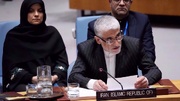
US-backed Israeli aggression a gross violation of intl. law: Iran envoy to UN
TEHRAN – Iran’s Ambassador and Permanent Representative to the United Nations, Amir Saeid Iravani, has strongly condemned the Israeli regime’s U.S.-supported military offensive on Iran, describing it as a flagrant breach of international law and the UN Charter.
-
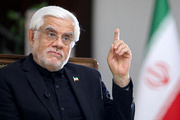
VP says Leader, public unity key to Iran’s resilience in 12-day war
TEHRAN – Iran’s First Vice President Mohammad Reza Aref says the government’s rapid response, strategic planning, and the leadership of the Leader of the Islamic Revolution Ayatollah Seyyed Ali Khamenei enabled the country to effectively manage the 12-day conflict with Israel.
Politics
-
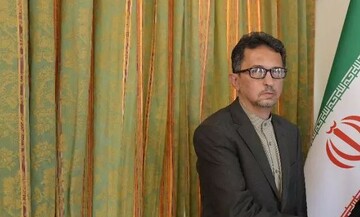
Silence is complicity: Iran envoy to Denmark slams Israeli attacks on hospitals
TEHRAN – Iran’s Ambassador to Denmark has condemned the Israeli military’s attacks on Iranian medical facilities, warning that the silence of the international medical community in the face of such assaults is not an act of neutrality but one of complicity.
-

Iran, Qatar affirm commitment to defense ties following 12-day war
TEHRAN – In a high-level exchange, Major General Abdolrahim Mousavi, Chief of Staff of Iran’s Armed Forces, held a phone conversation with Khalid bin Mohammed Al-Attiyah, Qatar’s Deputy Prime Minister and Minister of State for Defense Affairs, solidifying bilateral strategic coordination in the wake of the Israeli regime’s 12-day aggression against Iran.
-

Iran says no talks scheduled with US
TEHRAN – Iran has flatly denied claims by U.S. President Donald Trump that nuclear negotiations are back on the table.
Sports
-

Iran beat Indonesia at 2025 Asian U16 Volleyball Championship
TEHRAN – Iran defeated Indonesia 3-1 (21–25, 25–21, 25–19, 26–24) in the Asian Men’s U16 Volleyball Championship Thailand 2025 on Saturday.
-

Faghani picked to officiate Club World Cup final
TEHRAN - Alireza Faghani was picked to referee Sunday’s Club World Cup final between Chelsea and Paris Saint-Germain.
-

Hashemian's red test: Can he revive Persepolis?
TEHRAN - Persepolis, Iran’s most decorated football club, have entered a new chapter with the appointment of Vahid Hashemian as head coach.
Culture
-
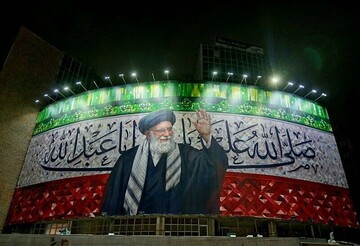
New mural of Ayatollah Khamenei unveiled, celebrating resistance, patriotism
TEHRAN- The latest mural at Valiasr Square in central Tehran was unveiled on Thursday, illustrating the image of the Leader of the Islamic Revolution, Ayatollah Seyyed Ali Khamenei, alongside the message "O shining love."
-
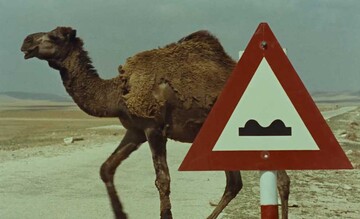
IAF to show Chris Marker’s “Description of a Struggle”
TEHRAN – The Iranian Artists Forum (IAF) in Tehran will screen the documentary “Description of a Struggle” directed by Chris Marker on Sunday.
-
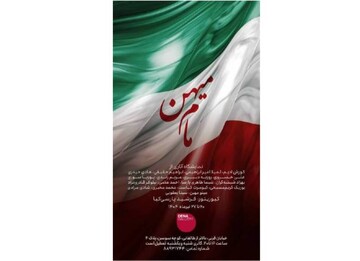
What’s in Tehran art galleries
An exhibition of paintings by a large number of artists is currently on view in an exhibition at Dena Gallery. The exhibition titled “Homeland” will run until July 18 at the gallery that can be found at 4 Sussan Alley off Qarani St.
Economy
-
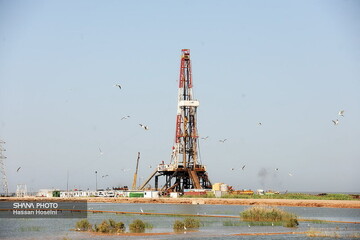
Iran leads global oil output growth with 13% rise in 2024
TEHRAN – Iran recorded the highest increase in crude oil production among all countries in 2024, boosting its daily output by 374,000 barrels, while top producers like Saudi Arabia and Russia saw significant declines, according to the latest OPEC statistics.
-
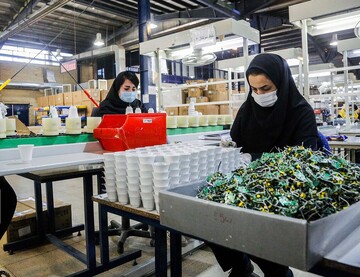
CBI praised for ensuring economic security during 12-day conflict
TEHRAN – A senior member of Iran Chamber of Commerce, Industries, Mines and Agriculture (ICCIMA) said the rapid allocation of foreign currency for essential imports played a vital role in maintaining economic security during the recent 12-day conflict, praising the Central Bank of Iran (CBI)’s performance in stabilizing markets and preventing panic.
-
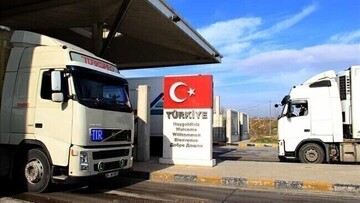
Iran exports non-oil goods worth $937m to Turkey in a quarter
TEHRAN- Iran exported non-oil commodities valued at $937 million to Turkey during the first quarter of the current Iranian calendar year (March 21-June 21), according to the head of the Islamic Republic of Iran Customs Administration (IRICA).
Society
-

From smart agriculture to rescue operations: Iranian-made drones booming
TEHRAN – Over the past two decades, Iranian knowledge-based companies have made notable efforts and contributed significantly to designing, building, and utilizing various types of drones for civilian purposes, including smart agriculture, cargo transport, maritime missions, as well as rescue and relief operations.
-
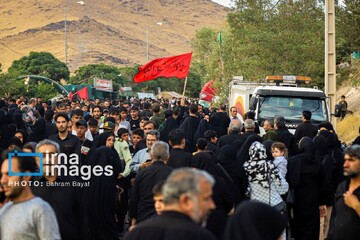
Documented refugees have no problem attending Arbaeen pilgrimage
TEHRAN – Authorized foreign nationals and refugees residing in Iran will be able to participate in the Arbaeen pilgrimage without any problems, the deputy interior minister has said.
-

IEEE Iran section grabs outstanding Section Award
TEHRAN – The Institute of Electrical and Electronics Engineers (IEE) organization has designated the IEEE Iran section as the Outstanding Section Award 2025.
Tourism
-
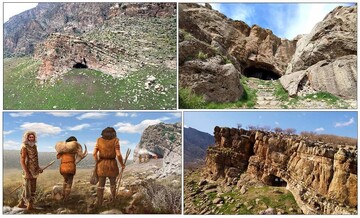
Milestone recognition marks Iran’s first Paleolithic World Heritage site
TEHRAN - In a landmark announcement during the 47th session of the UNESCO World Heritage Committee on Friday, in Paris, the Prehistoric Sites of the Khorramabad Valley were officially inscribed on the UNESCO World Heritage list.
-
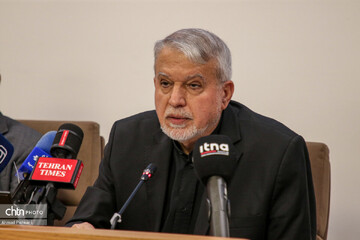
Cultural heritage is a voice against hostile narratives, Iran tourism minister says
TEHRAN – In a press conference held on Tuesday afternoon, Iran’s Minister of Cultural Heritage, Tourism and Handicrafts, Seyyed Reza Salehi-Amiri, along with his deputies, addressed the ministry’s role in shaping cultural resilience during the recent 12-day conflict with Israel.
-
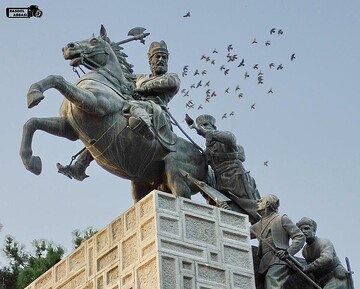
Historic Persian-Georgian documents of Iran’s Afsharid era digitized with British Library support
TEHRAN - A significant cultural heritage preservation initiative has culminated in the digitization and cataloguing of rare Persian and Georgian-Persian historical documents from the Afshar period, preserved at the Korneli Kekelidze National Centre of Manuscripts in Tbilisi, Georgia.
International
-

US move against UN Gaza investigator comes as a shock
TEHRAN - The United States' decision to impose sanctions on Francesca Albanese, the UN Special Rapporteur on the situation of human rights in the Occupied Palestinian Territory, has ignited a global outcry and intensified debates over international justice, the independence of UN mechanisms, and the limits of state power.
-

Is Geagea pushing his ministers to resign?
BEIRUT—Lebanese Forces leader Samir Geagea continues to prioritize the slogan of “disarming Hezbollah,” particularly following the diminished influence of U.S. envoys in Lebanon's political landscape.
-

Exclusive: Expert says Israel would have been destroyed had it attacked Iran without Western backing
TEHRAN - In an exclusive interview with Tehran Times, Dimitri Lascaris, a prominent Canadian lawyer, journalist, and human rights activist, offers a powerful critique of the recent Israeli and U.S. military strikes against Iran.
Most Viewed
-
Ayatollah Khamenei personally commanded war room
-
US move against UN Gaza investigator comes as a shock
-
Iran fall in FIFA rankings
-
Iran leads global oil output growth with 13% rise in 2024
-
Is Geagea pushing his ministers to resign?
-
New mural of Ayatollah Khamenei unveiled, celebrating resistance, patriotism
-
Purchasing 15 new drilling rigs for oil, gas industry on agenda
-
Milestone recognition marks Iran’s first Paleolithic World Heritage site
-
Iran kick off AFC Women’s Asian Cup Australia 2026 qualifier on high note
-
Russia’s Lavrov denounces US strikes on Iran as brazen NPT violation
-
Iran’s Army Chief surveys units, stresses steadfast defense
-
Iran’s women’s basketball need one step further
-
CBI praised for ensuring economic security during 12-day conflict
-
Iran exports non-oil goods worth $937m to Turkey in a quarter
-
VP says Leader, public unity key to Iran’s resilience in 12-day war


